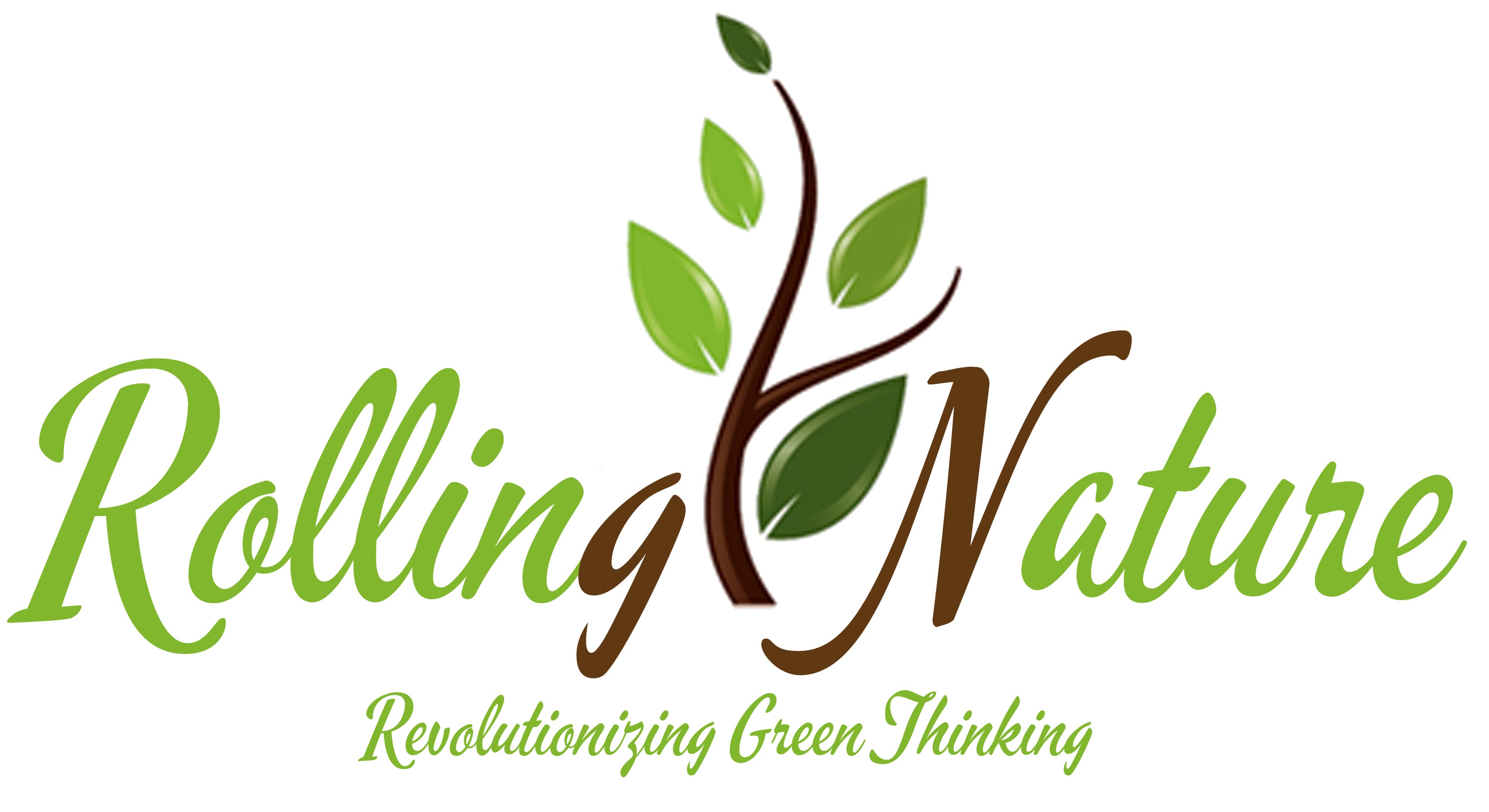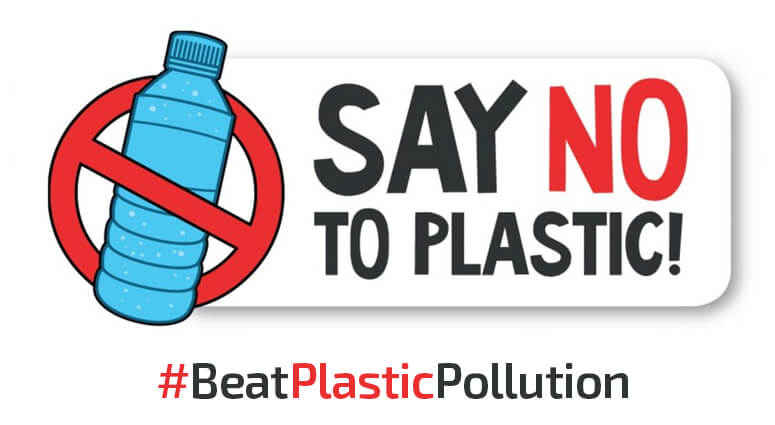Today is World Environment Day, UN's most important day for encouraging worldwide awareness and action for the protection of our environment. Above all, World Environment Day is the "people's day" for doing something to take care of the Earth. That "something" can be focused locally, nationally or globally; it can be a solo action or involve a crowd. Everyone is free to choose.
Each World Environment Day is organized around a theme that focuses attention on a particularly pressing environmental concern. The theme for 2018, “Beat Plastic Pollution,” is a call to action for all of us to come together to combat one of the great environmental challenges of our time. The theme invites us all to consider how we can make changes in our everyday lives to reduce the heavy burden of plastic pollution on our natural places, our wildlife – and our own health. While plastic has many valuable uses, we have become over-reliant on single-use or disposable plastic – with severe environmental degradation.
We are spreading awareness to not to use artificial plants instead using the real ones with “Say No to Artificial Plants” Campaign. Along with that we are doing a plant distribution drive this week. You can read more here https://bit.ly/2H19KDu
WHAT CAN WE DO TO PREVENT PLASTIC WASTE?
These easy things can dramatically decrease the amount of plastic trash you make.
Use reusable shopping bags Go BYOB- “Bring Your Own Bag”.
Stay Away From ‘Use and Throw’ Plastics
Say no to straws
Use reusable bottles and cups
Bring your own container for food take away
Don’t use disposable plastic ware
Return and reuse plastic containers
We insist everyone to encourage 4 R S. REFUSE disposable plastic whenever and wherever possible. Choose items that are not packaged in plastic, and carry your own bags, containers and utensils. REDUCE your plastic footprint. Cut down on your consumption of goods that contain excessive plastic packaging and parts. If it will leave behind plastic trash, don't buy it. REUSE durable, non-toxic straws, utensils, to-go containers, bottles, bags, and other everyday items. Choose glass, paper, stainless steel, wood, ceramic and bamboo over plastic. RECYCLE what you can’t refuse, reduce or reuse. Pay attention to the entire life cycle of items you bring into your life, from source to manufacturing to distribution to disposal.
Plastic garbage. It’s something we all see every day. Don’t be fooled to think that these plastics are merely an eyesore. We’ve become so accustomed to using plastic utensils, straws, water bottles and bags that it’s easy to forget the impact this has on our environment and climate.
“If you can’t reuse it, refuse it”.
Current Scenario in India:
India generates 5.6 million tons of plastic waste annually and its cities generate approximately 15,000 tons of plastic waste in a day out of which 9,000 tons are collected and processed/recycled while the remaining 6,000 tons usually are dumped in landfills, streets and drains, according to a January 2015 assessment report of the Central Pollution Control Board (CPCB). The report by CPCB also states that about 66% of plastic waste is mixed waste–poly bags and pouches which are used for packing food. India accounts for 60% of plastic waste dumped into the world’s oceans every year. Also, three of the world’s ten rivers carrying 90% of plastic to the oceans are in India – the Indus, the Ganga and the Brahmaputra. Ocean plastic has been estimated to kill millions of marine animals and around 700 species, including endangered ones have been affected by it. From zooplanktons to whales to seahorses, the marine animals are consuming microplastics; in case, you are not aware what micro plastic is, they are the plastic pieces which are bits smaller than one-fifth of an inch across.
In India, 25 states and union territories have initiated some form of ban on polythene carry bags, but due to inadequate strict rules, it continues to be used and being littered in the water bodies and landfills. Although in some states of India like Sikkim, Uttarakhand and Rajasthan, plastic ban seems effective and plastic waste awareness is quite prominent.
The Northeastern state of Sikkim banned plastic bags long before plastic waste was creating the round in the world. In 1998, this Indian state banned disposable plastic bags; the reason that triggered Sikkim to take such an action was the episode of heavy rainstorm during which the drains choked due to plastic bag accumulation, which further led in a horrific landslide that costed some natives their lives as well. Sikkim is also amongst the first states in the country to ban single-use plastic bottles in the year 2016. It was through penalties, state-level policies and a mass awareness programme that Sikkim was able to become a state free of plastic pollution free. Plastic is also ban in states like Jammu & Kashmir, Uttar Pradesh, Karnataka and Arunachal but due to lax rules and confusion on which grade plastic should be allowed, the ban remains ineffective. There is a need to design new plastics and its products that are either biodegradable or recyclable. Also, avoiding unnecessary uses of the items, are seen as the long-term solutions to the plastic waste problem. There is also a need to collect trash on a regular basis from the streets and houses that should later be either landfilled, recycled, or burned.
Plastic is truly an enemy of the planet. There is a dire need to realize its hazards and come together as a race who wants the future of the earth to be better and safe. Educate yourself about your surroundings, make others aware and take one step at a time to remove plastic from your houses, offices and neighborhoods. Take a pledge this World Environment Day to #BeatPlasticPollution, slowly and gradually.
DO YOU KNOW THE PLASTIC POLLUTION SHOCKING FACTS?
8.3 BILLION Metric Tons (9.1 BILLION US Tons) of plastic has been produced since plastic was introduced in the 1950sThe amount of plastic produced in a year is roughly the same as the entire weight of humanity.
Bottled water produces 1.5 million tons of plastic waste per year, and these bottles require 47 million gallons of oil to produce, according to Food & Water Watch.
Virtually every piece of plastic that was ever made still exists in some shape or form (with the exception of the small amount that has been incinerated).
91% of plastic waste isn’t recycled. And since most plastics don’t biodegrade in any meaningful sense, all that plastic waste could exist for hundreds or even thousands of years.
Nearly TWO MILLION single-use plastic bags are distributed worldwide every minute
MILLION METRIC TONS of plastic winds up in our oceans each year. That’s enough trash to cover every foot of coastline around the world with five full trash bags of plastic…compounding every year.
There is more micro plastic in the ocean than there are stars in the Milky Way
If plastic production isn’t curbed, plastic pollution will outweigh fish pound for pound by 2050
Polypropylene bags look like cloth but are actually plastic bags.
This article is by Vandana Chaudhary, Co-Founder of Rolling Nature
Rolling Nature Brings You Complete Customized Green Gifting & Green Decor Solutions! We provide you ready potted, low maintenance fresh plants in exotic pots that establish an outstanding style statement for your green decor. We offer Good Luck Feng Shui, Vastu, Succulents, Ornamentals & NASA recommended Air-Purifying live plants, in exclusively handcrafted ceramic pot collections inspired by pottery around the world. The potting mix is unique which means better shelf life, healthy growth, and less watering or overall maintenance. We provide care information about the plant along with Feng Shui Placement tips. We are a pioneer in Green Gifting. Try our customization options, for brand incorporation for corporate gifts or choose thematic customized gifts for occasions such as Diwali, birthday, wedding, inaugurations & more. Celebrate Life with Little Green! Breathe Fresh! Bring Your Garden Indoors! Revolutionizing Green Thinking Since 6 Years! Available on Amazon, Flipkart, Pepperfry, Myntra & Snapdeal. www.rollingnature.com
Connect with us : Call or Whatsapp at 8698407574 or mail us at sales@rollingnature.com or care@rollingnature.com
Science Advances, http://advances.sciencemag.org/content/3/7/e1700782
Science Advances, http://advances.sciencemag.org/content/3/7/e1700782
National Geographic, https://news.nationalgeographic.com/2017/07/plastic-produced-recycling-waste-ocean-trash-debris-environment
National Geographic, https://news.nationalgeographic.com/2017/07/plastic-produced-recycling-waste-ocean-trash-debris-environment
National Park Service, https://www.nps.gov/commercialservices/greenline_straw_free.htm
Earth Policy Institute, http://www.earth-policy.org/press_room/C68/plastic_bags_fact_sheet
Science Advances, http://advances.sciencemag.org/content/3/7/e1700782
United Nations, https://news.un.org/en/story/2017/02/552052-turn-tide-plastic-urges-un-microplastics-seas-now-outnumber-stars-our-galaxy#.WLA81BLyvBJ
World Economic Forum Report, http://www3.weforum.org/docs/WEF_The_New_Plastics_Economy.pdf

